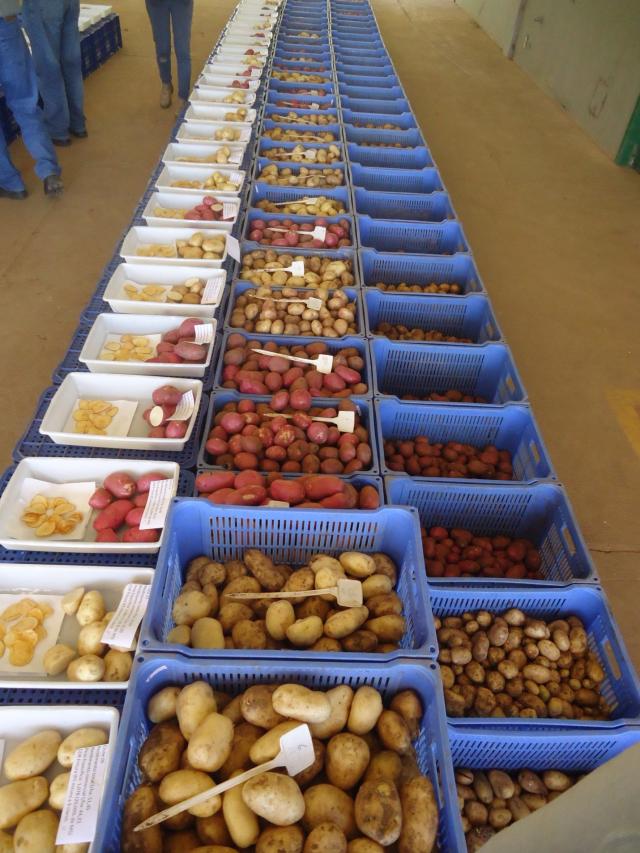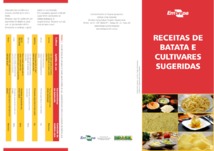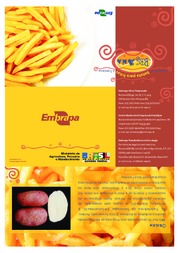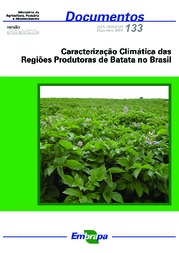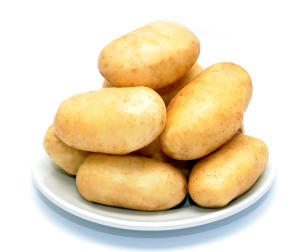Partnerships strengthen potato breeding program
Partnerships strengthen potato breeding program
In the course of its existence, Embrapa's potato breeding program has involved multiple partnerships, both in Brazil and abroad, which conveys its importance in the vegetable production chain.In this context, the efforts expended by the institutions concerned have recorded satisfactory progress, which can be demonstrated through the development of new cultivars that are more productive and have higher disease resistance and good commercial appearance.
To discuss advances and anticipate scenarios related to the program, it periodically promotes meetings between researchers, technicians and growers such as the half field day held in the facilities of Embrapa Products and Market's Canoinhas Office on December 6.
In addition to Embrapa Products and Market, the event counted on the participation of Embrapa Vegetables (Brasília, DF) and Embrapa Temperate Agriculture (Pelotas, RS), the Les Buissons Research Center (Centre de Recherche Les Buissons - CRLB, Canada), the Brazilian Potato Association (Associação Brasileira da Batata - ABBA), the Paraná Agronomic Institute (Instituto Agronômico do Paraná - Iapar), the Santa Catarina Agricultural Research and Rural Extension Corporation (Empresa de Pesquisa Agropecuária e Extensão Rural de Santa Catarina - Epagri), and growers of seed potatoes, table potatoes and processing potatoes.
The occasion included the presentation of 34 potato clones that are being tested by Embrapa under the cooperation agreement established between Embrapa and CRLB, to which ABBA attested and which stipulates the joint development of cultivars that will be selected for adaptation to Brazilian conditions. "The perspective is to launch the cultivars as commercial varieties", foretells the researcher Giovani Olegário, from the Canoinhas Office.
According to the researcher, the clones at the test stage result from crossbreedings performed in Canada between 1999 and 2005 that were pre-selected for agronomic and industrial processing traits in field conditions in that country. On addition to the materials developed by CRLB, 16 advanced clones that belong to the group of clones planted in Canoinhas in the second harvest period of 2016 were also presented.
Results
Based on the information that accompanied each clone of the latter group, participants filled in a form where they designated the materials that they considered the best, in accordance with individual preferences. After the general grading, out of the 16 clones Embrapa presented, four were promoted to be validated in the main Brazilian producing regions, some were discarded, and others will remain under assessment, a result Olegário justified in light of "more access to information on such materials, based on experiments held in Canoinhas, Pelotas and Brasília".
The same procedure will have to be adopted with regard to the clones developed in Canada – the best ones will be selected and submitted to validation tests in Brazil.
As a dimension of the work in question, the researcher asserts the fact that it is being added to the institutional agenda, as in the example of the activity in Canoinhas, shows the results of the combined efforts of Embrapa and partner institutions, especially CRLB/Canada and ABBA. "In that sense, the exchange of information between stakeholders of the potato chain - growers, researchers, industry - was very important, and helped the assessment of the clones, whose goal was to choose those with greater potential to become new cultivars".
Translation: Mariana de Lima Medeiros
Anelise Macedo (MTB 2.748/DF)
Embrapa Vegetables
Press inquiries
hortalicas.imprensa@embrapa.br
Phone number: +55 61 3385-9109
Further information on the topic
Citizen Attention Service (SAC)
www.embrapa.br/contact-us/sac/

